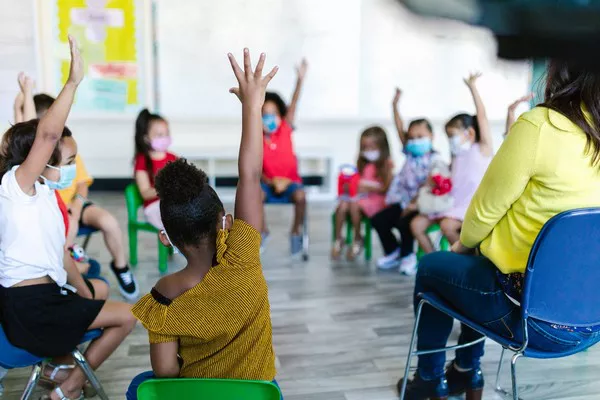In the formative years of childhood, the development of self-esteem plays a pivotal role in shaping a child’s future. Self-esteem is the foundation upon which a child builds their sense of worth and confidence. Recognizing the significance of fostering positive self-esteem in preschoolers is crucial for their overall well-being and success. This article will explore various strategies and techniques to promote self-esteem in preschool-aged children, laying the groundwork for a healthy and resilient future.
Understanding Self-Esteem in Preschoolers
Self-esteem in preschoolers is the child’s overall evaluation of their own worth and capabilities. It encompasses feelings of competence, acceptance, and a positive sense of identity. Preschoolers are at a stage where they are forming their self-concept, making it a critical period for building a strong foundation of self-esteem.
Creating a Supportive Environment
The environment in which preschoolers learn and play significantly influences their self-esteem. A nurturing and supportive atmosphere provides children with a sense of security, allowing them to explore and express themselves without fear of judgment. Teachers and caregivers play a crucial role in fostering an environment where self-esteem can thrive. Encouraging positive interactions, providing constructive feedback, and promoting a sense of belonging are essential components in creating a supportive setting for preschoolers.
Developing Positive Relationships
Building positive relationships with both adults and peers is fundamental in shaping a child’s self-esteem. Preschoolers develop their sense of self through interactions with others, making it vital to foster healthy relationships. Encourage cooperative play, teach empathy, and model positive communication to help preschoolers build meaningful connections. By experiencing positive relationships, children develop a sense of belonging and acceptance, reinforcing their self-worth.
See Also: How to increase self esteem psychology?
Promoting Autonomy and Independence
Preschoolers are at a stage where they are eager to assert their independence. Encouraging autonomy in decision-making and allowing them to take on age-appropriate responsibilities can significantly contribute to the development of positive self-esteem. When children feel a sense of control over their actions and choices, they gain confidence in their abilities and develop a positive self-image.
Encouraging Positive Self-Talk
The internal dialogue that children have with themselves, known as self-talk, plays a crucial role in shaping their self-esteem. Teaching preschoolers to use positive affirmations and constructive self-talk can help build a resilient mindset. Encourage phrases like “I can do it” or “I am capable,” reinforcing a positive self-perception. By fostering optimistic self-talk, children learn to overcome challenges and setbacks with confidence.
Celebrating Achievements, Big and Small
Acknowledging and celebrating achievements, regardless of size, is a powerful tool in building self-esteem in preschoolers. Whether it’s mastering a new skill, completing a task, or showing kindness to a friend, recognizing and praising their efforts reinforces a positive self-image. Celebrations can be verbal affirmations, stickers, or a simple applause, creating a supportive environment where preschoolers feel valued and proud of their accomplishments.
Embracing Mistakes as Learning Opportunities
Helping preschoolers understand that making mistakes is a natural part of learning is essential for building resilient self-esteem. Encourage a growth mindset by emphasizing that mistakes provide valuable lessons and opportunities for improvement. Instead of focusing on the error itself, highlight the effort and determination put forth, fostering a positive attitude towards challenges and setbacks.
Implementing Inclusive Activities
Inclusive activities that cater to a variety of interests and abilities contribute to a positive sense of self for all preschoolers. Ensure that classroom activities and play opportunities are diverse and inclusive, allowing every child to participate and feel a sense of achievement. When children see that their unique strengths and contributions are valued, it enhances their self-esteem and fosters a sense of belonging within the group.
Teaching Emotional Regulation
Preschoolers are still developing their emotional regulation skills, and learning to navigate their feelings is crucial for building self-esteem. Provide tools and strategies for identifying and expressing emotions in a healthy manner. By understanding and managing their emotions, children develop a sense of control and self-awareness, positively impacting their self-esteem.
Promoting a Positive Body Image
Body image begins to form at a young age, and it’s essential to promote a positive and healthy perception of one’s body. Avoid using negative language about appearance and emphasize the importance of a healthy lifestyle rather than focusing on external appearance. Encourage activities that celebrate movement, health, and self-care, fostering a positive body image from an early age.
Incorporating Diversity and Inclusion
Acknowledging and celebrating diversity in the preschool environment is vital for building inclusive self-esteem. Introduce children to diverse cultures, traditions, and perspectives to promote acceptance and understanding. Emphasize the uniqueness of each child and create an atmosphere where differences are celebrated. By fostering an inclusive environment, preschoolers develop a sense of pride in their individual identity and a respectful appreciation for others.
Conclusion
Building self-esteem in preschoolers is a multifaceted process that requires a holistic and intentional approach. By creating a supportive environment, fostering positive relationships, and promoting autonomy, educators and caregivers contribute significantly to a child’s sense of self-worth. Encouraging positive self-talk, celebrating achievements, embracing mistakes, and incorporating inclusive practices further enhance the development of self-esteem in preschool-aged children. As we invest in the self-esteem of our youngest learners, we pave the way for confident, resilient, and well-rounded individuals who are better equipped to face the challenges of the future.
Related Topics:


























